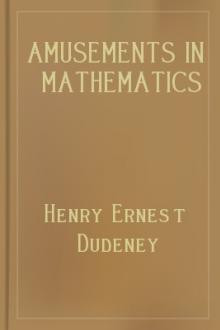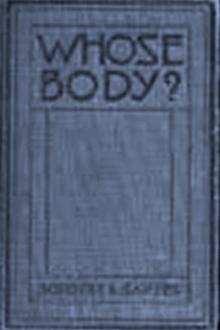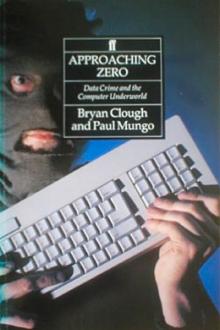Genre Literary Collections. Page - 30

these transformations all the other physical properties of a substance save weight are likely to change, the inquiry arises, Does the weight also change? Much careful experimenting has shown that it does not. The weight of the products formed in any change in matter always equals the weight of the substances undergoing change.
~Law of conservation of matter.~ The important truth just stated is frequently referred to as the law of conservation of matter, and this law may be briefly stated thus: Matter can neither be created nor destroyed, though it can be changed from one form into another.
~Classification of matter.~ At first sight there appears to be no limit to the varieties of matter of which the world is made. For convenience in study we may classify all these varieties under three heads, namely, mechanical mixtures, chemical compounds, and elements.
[Illustration: Fig. 1]
~Mechanical mixtures.~ If equal bulks of common salt and iron filings

ter constitute "character," each of them as a "moral virtue" (literally "a goodness of character"), and upon them primarily depends the realisation of happiness. This is the case at least for the great majority of men, and for all men their possession is an indispensable basis of the best, i e, the most desirable life. They form the chief or central subject-matter of the Ethics.
Perhaps the truest way of conceiving Aristotle's meaning here is to regard a moral virtue as a form of obedience to a maxim or rule of conduct accepted by the agent as valid for a class of recurrent situations in human life. Such obedience requires knowledge of the rule and acceptance of it as the rule of the agent's own actions, but not necessarily knowledge of its ground or of its systematic connexion with other similarly known and similarly accepted rules (It may be remarked that the Greek word usually translated "reason," means in almost all cases in the Ethics such a rule, and not the fa

" (John 6:38) "My teaching is not Mine" (John 7:16) "I am not come of Myself" (John 7:28) "I do nothing of Myself" (John 8:28) "I have not come of Myself, but He sent Me" (John 8: 42). "I seek not Mine own glory" (John 8:50) "The words that I say, I speak not from Myself" (John 14: 10). "The word which ye hear is not Mine" (John 14: 24).
These words open to us the deepest roots of Christ's life and work. They tell us how it was that the Almighty God was able to work His mighty redemptive work through Him. They show what Christ counted the state of heart which became Him as the Son of the Father. They teach us what the essential nature and life is of that redemption which Christ accomplished and now communicates. It is this: He was nothing, that God might be all. He resigned Himself with His will and His powers entirely for the Father to work in Him. Of His own power, His own will, and His own glory, of His whole mission with all His works and His teaching, of all this He said, It is not I; I am nothing

hatever. This is where screen capturing and logging come in.
When you tell your communications software to capture a screen, it opens a file in your computer (usually in the same directory or folder used by the software) and "dumps" an image of whatever happens to be on your screen at the time.
Logging works a bit differently. When you issue a logging command, you tell the software to open a file (again, usually in the same directory or folder as used by the software) and then give it a name. Then, until you turn off the logging command, everything that scrolls on your screen is copied into that file, sort of like recording on videotape. This is useful for capturing long documents that scroll for several pages -- using screen capture, you would have to repeat the same command for each new screen.
Terminal emulation is a way for your computer to mimic, or emulate, the way other computers put information on the screen and accept commands from a keyboard. In general, most systems on the Net

bleby law? I came out this morning with a certain amount of money in mypocket, and I find I have spent just half of it. In fact, if you willbelieve me, I take home just as many shillings as I had pounds, and halfas many pounds as I had shillings. It is monstrous!'" Can you sayexactly how much money Jorkins had spent on those presents?
11.--THE CYCLISTS' FEAST.
'Twas last Bank Holiday, so I've been told,Some cyclists rode abroad in glorious weather.Resting at noon within a tavern old,They all agreed to have a feast together."Put it all in one bill, mine host," they said,"For every man an equal share will pay."The bill was promptly on the table laid,And four pounds was the reckoning that day.But, sad to state, when they prepared to square,'Twas found that two had sneaked outside and fled.So, for two shillings more than his due shareEach honest man who had remained was bled.They settled later with those rogues, no doubt.

wer to the description of any they'd had."
"Nor to the description of any of the patients, I hope," suggested Lord Peter casually.
At this grisly hint Mr. Thipps turned pale.
"I didn't hear Inspector Sugg enquire," he said, with some agitation. "What a very horrid thing that would be--God bless my soul, my lord, I never thought of it."
"Well, if they had missed a patient they'd probably have discovered it by now," said Lord Peter. "Let's have a look at this one."
He screwed his monocle into his eye, adding: "I see you're troubled here with the soot blowing in. Beastly nuisance, ain't it? I get it, too--spoils all my books, you know. Here, don't you trouble, if you don't care about lookin' at it."
He took from Mr. Thipps's hesitating hand the sheet which had been flung over the bath, and turned it back.
The body which lay in the bath was that of a tall, stout man of about fifty. The hair, which was thick and black and naturally curly, had been cut and parted by

calls. The whole transaction had taken less than ten minutes.
The next day, after his friend in Kentucky had picked up the $687, Fry Guy carried out a second successful transaction, this time worth $432. He would perform the trick again and again that summer, as often as he needed to buy more computer equipment and chemicals. He didn't steal huge amounts of money-- indeed, the sums he took were almost insignificant, just enough for his own needs. But Fry Guy is only one of many, just one of a legion of adolescent computer wizards worldwide, whose ability to crash through high-tech security systems, to circumvent access controls, and to penetrate files holding sensitive information, is endangering our computer-dependent societies. These technology-obsessed electronic renegades form a distinct subculture. Some steal--though most don't; some look for information; some just like to play with computer systems. Together they probably represent the future of our computer-dependent society. Welcome to the com

calling. He was working as atailor's apprentice near Bonchurch, in the Isle of Wight, when thenews flew through the village that a squadron of men-of-war wassailing off the island. He sprang from the shopboard, and ran downwith his comrades to the beach, to gaze upon the glorious sight.The boy was suddenly inflamed with the ambition to be a sailor; andspringing into a boat, he rowed off to the squadron, gained theadmiral's ship, and was accepted as a volunteer. Years after, hereturned to his native village full of honours, and dined off baconand eggs in the cottage where he had worked as an apprentice. Butthe greatest tailor of all is unquestionably Andrew Johnson, thepresent President of the United States--a man of extraordinaryforce of character and vigour of intellect. In his great speech atWashington, when describing himself as having begun his politicalcareer as an alderman, and run through all the branches of thelegislature, a voice in the crowd cried, "From a tailor up." Itwas ch

ury of both.
When the French Revolution broke out, it certainly afforded to Mr. Burke an opportunity of doing some good, had he been disposed to it; instead of which, no sooner did he see the old prejudices wearing away, than he immediately began sowing the seeds of a new inveteracy, as if he were afraid that England and France would cease to be enemies. That there are men in all countries who get their living by war, and by keeping up the quarrels of Nations, is as shocking as it is true; but when those who are concerned in the government of a country, make it their study to sow discord and cultivate prejudices between Nations, it becomes the more unpardonable.
With respect to a paragraph in this work alluding to Mr. Burke's having a pension, the report has been some time in circulation, at least two months; and as a person is often the last to hear what concerns him the most to know, I have mentioned it, that Mr. Burke may have an opportunity of contradicting the rumour, if he thinks proper.

nd 2 carrots cut fine, 1 bay-leaf, a sprig of thyme and a fewpeppercorns. Pour over 1 cup of vinegar and 1 cup of hot water. Dredgewith flour and let bake in a hot oven. Baste often with the sauce inthe pan until nearly done; then add 1 pint of sour cream and let bakeuntil done. Thicken with flour; boil up and pour over the roast.
14.--Italian Sugar Cakes.
Beat 1-1/2 pounds of sugar and 1/2 pound of butter to a cream; add 4yolks of eggs, a pinch of salt and nutmeg. Stir in 1/2 pound of flour,4 ounces of currants, 2 ounces of chopped almonds, 1 tablespoonful ofcitron and candied orange peel chopped fine. Add the whites beatenstiff and bake in small well-buttered cake-tins until done; then coverwith a thin icing.
15.--Oriental Stewed Prawns.
Clean and pick 3 dozen prawns. Heat some dripping in a large saucepan;add the prawns, 1 chopped onion, salt, pepper and 1 teaspoonful ofcurry-powder. Add 1 pint of stock and let simmer half an hour untiltender. Serve on a border of boiled r